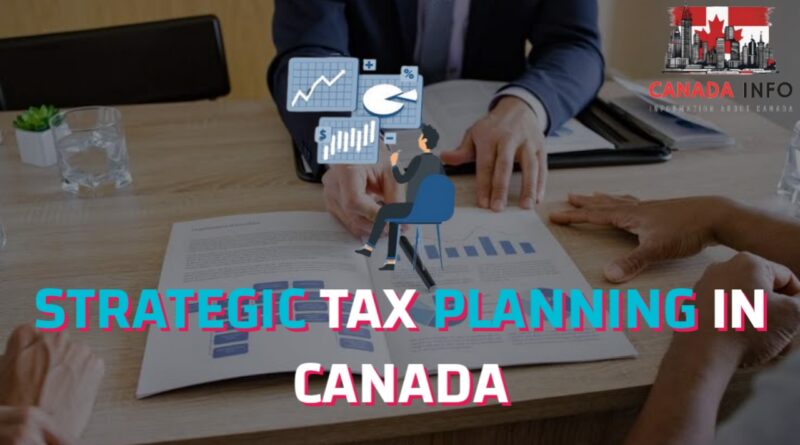Strategic Tax Planning for Individuals and Corporations in Canada
Tax planning is a critical aspect of financial management for individuals and corporations in Canada, offering opportunities to minimize tax liabilities and maximize savings. In this article, we delve deeper into various tax planning strategies tailored for both individuals and corporations within the Canadian tax system.
Understanding the Canadian Tax System:
- Progressive Taxation for Individuals:
Canada employs a progressive tax system, where tax rates increase as income levels rise. Individuals are taxed based on their total income, which encompasses employment earnings, investment income, and other sources. It’s imperative to grasp the nuances of tax brackets, credits, and deductions available to individuals to optimize tax planning. - Corporate Taxation in Canada:
Corporations in Canada are subject to corporate income tax on their profits. The federal corporate tax rate is supplemented by provincial or territorial tax rates, resulting in varying tax burdens across different regions. Understanding the intricacies of corporate taxation, including eligible deductions, credits, and tax deferral strategies, is crucial for effective tax planning.
Tax Planning Strategies for Individuals:
- Utilizing Tax-Advantaged Accounts:
Individuals can leverage registered retirement savings plans (RRSPs) and tax-free savings accounts (TFSAs) to build wealth and reduce tax liabilities. RRSP contributions are tax-deductible, providing immediate tax savings, while TFSA contributions grow tax-free, offering flexibility in investment choices and withdrawals. - Maximizing Tax Credits and Deductions:
Identifying and maximizing eligible tax credits and deductions is key to reducing taxable income for individuals. This includes claiming credits for charitable donations, medical expenses, tuition fees, and eligible employment expenses. Additionally, utilizing tax-loss harvesting strategies can offset capital gains and minimize tax obligations. - Income Splitting and Family Tax Planning:
Income splitting strategies, such as spousal RRSP contributions and utilizing family trusts, can help redistribute income among family members to lower the overall tax burden. Taking advantage of tax credits available to families, such as the Canada Child Benefit and child care expenses deduction, further enhances tax planning opportunities.
Tax Planning Strategies for Corporations:
- Optimal Business Structures:
Choosing the right business structure, whether it’s a sole proprietorship, partnership, or incorporation, has significant implications for tax planning. Incorporating a business can provide tax advantages, including lower corporate tax rates, enhanced liability protection, and opportunities for income splitting through dividends. - Strategic Expense Management:
Identifying and maximizing deductible business expenses is essential for minimizing taxable income. This includes salaries and wages, rent, utilities, office supplies, and professional fees. Additionally, leveraging capital cost allowance (CCA) deductions for depreciating assets can further reduce taxable income. - Tax Deferral and Income Retention Strategies:
Corporations can implement tax deferral strategies to postpone tax obligations and retain more income within the business. This may involve reinvesting profits into growth initiatives, deferring salary or bonus payments, or utilizing tax-deferred investment vehicles such as corporate-owned life insurance policies or individual pension plans (IPPs).
Consultation with Tax Professionals:
Given the complexity of the Canadian tax system and the evolving regulatory landscape, seeking guidance from qualified tax professionals is paramount. Accountants, tax advisors, and lawyers specialized in taxation can provide tailored tax planning strategies, ensure compliance with tax laws, and optimize tax outcomes for individuals and corporations alike.
Comprehensive tax planning is essential for individuals and corporations in Canada to minimize tax liabilities, maximize savings, and achieve long-term financial objectives. By understanding the intricacies of the Canadian tax system and implementing strategic tax planning strategies, taxpayers can effectively manage their tax affairs, optimize their financial resources, and navigate the complexities of taxation with confidence and efficiency.

